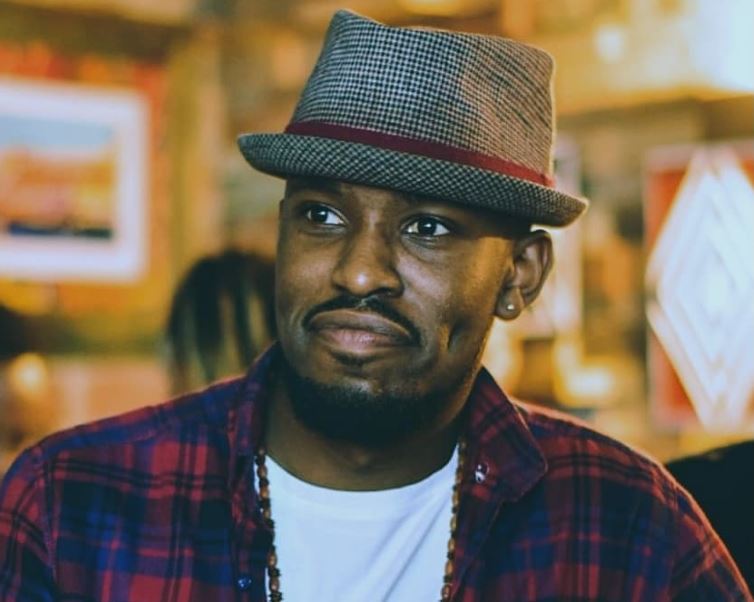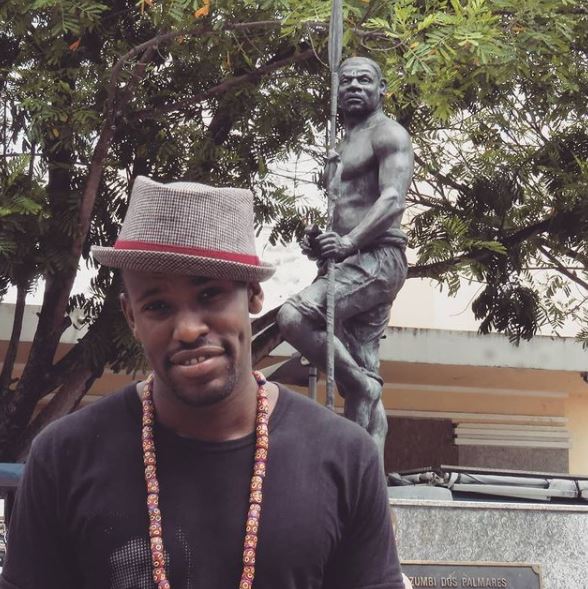
In January 2017, he was selected as one of six creative individuals from all nations, working in all disciplines, in order to promote increased intercultural understanding and global interconnectedness at Sacatar in Brazil.
Kato talked to PeopleDaily about his music and experience in Brazil, including his 5 minutes of fame.
You seem to love Brazil. What is it with you and the South American nation?
I initially travelled to Brazil for a three-month artiste exchange programme through the Africa Foundation in 2016 on the Itaparica Island.
I later travelled to Brazil four times including the one in 2017 thanks to Brazilian musician Luedji Luna.
I returned again in 2018 when Luedji’s career had blown up after our collaboration.
Many people were excited about this new Afro-Brazilian sound, and she later contacted me back for a European tour.
How were the experiences for you in Brazil?
In March 2020, I got stranded in Brazil for seven months due to the Covid-19 pandemic.
Initially, I was staying at an Airbnb and then I stayed with Francois Muleka a guitarist.
Then moved to another artiste’s residency called um sete sete zero that was established in 1770.
I created a film about it using just my phone and that was 2020 for me. My Portuguese is a lot better; I can speak basic phrases.
Brazil is now a part of my life; it is amazing because the music, art and the culture are deeply ingrained together.
At 6am you could hear a group of percussionists just playing on the street. The people are beautiful and the culture is rich, warm and diverse.
There is however a lot of inequality and racism on many different levels. Their reception towards Africans is both warm and racist.
Unlike here where we were colonized, the blacks there were slaves, so you can still see some sort of institutionalised slavery.
Nonetheless, there is a deep-rooted and authentic connection to Africa, which made me feel at home.
Just how did you and Luedji hit up for the collaborations?
I met her during my residency in Brazil at an open day where the residency opens up for the public.
I had a performance for a small crowd and an audience member approached me saying she is a friend of Luedji who then told her about me.
She then came down to the island to meet me, after which she asked me to curtain raise for her next show.
After the show she told me that she liked my sound and that she was working on an album. We rehearsed for a week and finished the album in three days.
I was there for a month at that point. After her show was cancelled in Angola in 2018, I invited her to come and perform in Kenya and we organised a performance at the J’s Restaurant.
Tell us more about your hit Paper Swan.
I wrote it for my father. It is a metaphor for my relationship with him. It reflects how children tend to view their parents as perfect, but as they grow older they start to have a different view of who their parents really are.
They start to form different relationships where genuine friendships blossom.
You realise that they are just normal human beings trying to live their lives and raise children.
So, as you fold the paper, you don’t know what is going to be, but you get to understand them better. At the end, a paper swan comes out of it; an unfiltered friendship.
What should we hope to see from you in the near future?
I am currently working on a hip-hop album, which is a collaboration between local and Brazilian musicians.
It’s my attempt at connecting two different cultures that have a lot of differences and similarities. I have also learnt a lot about filmography, so I can see myself doing a lot of film-based projects too.
Your craziest experience while on tour is?
Back in 2017 in Itaparica, I couldn’t speak Portuguese and barely knew anyone there who spoke English.
During one of my stays there, I dropped my phone and credit card inside a taxi. Through the grace of God, I managed to get them back as the cab driver managed to contact me.
The media found out about it and covered it on one of their channels terming it “The Kenyan who lost everything and got it back!” (laughs).
So, I found myself on national news and my 15 minutes of fame in Brazil.
What magic do you employ on the guitar to come out so authentic the way it does?
I try to emulate sounds of African instruments such as the nyatiti because of musicians such as Ayub Ogada and Makadem, and the kora which I have been exposed to from West Africa.
I also try to express the guitar rhythms I’ve heard from the Congo and benga music from Kenya.
I try to combine all these influences and create a sound that is mine, which is a challenge but fulfilling, as they’re sounds that resonate with me and would like to be identified as my sound as an artiste.
The goal for me is to be authentic and establish something our future generations can use to look back and identify themselves with too.
source http://nairobiwire.com/2021/06/kato-change-i-lost-everything-in-brazil-and-made-national-news.html


No comments:
Post a Comment